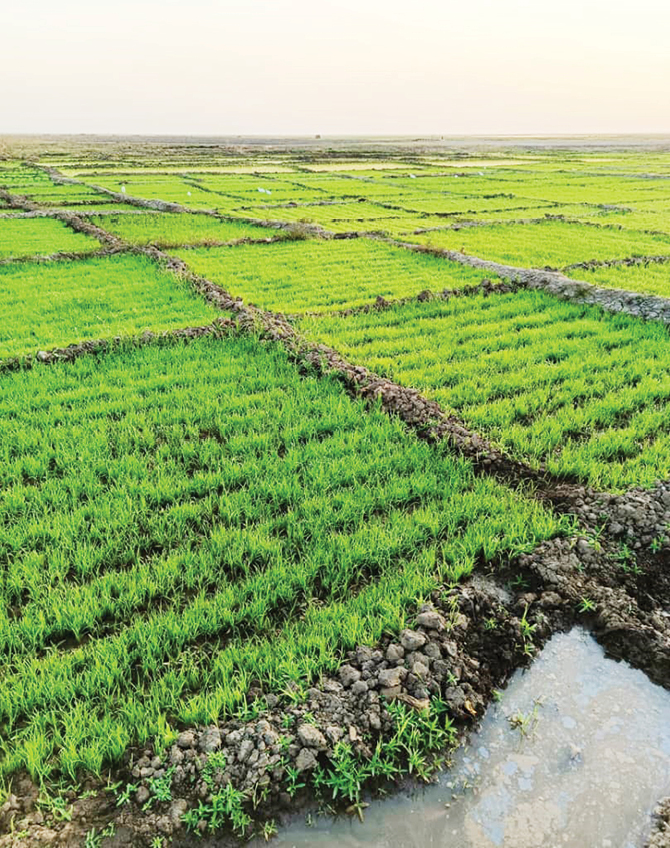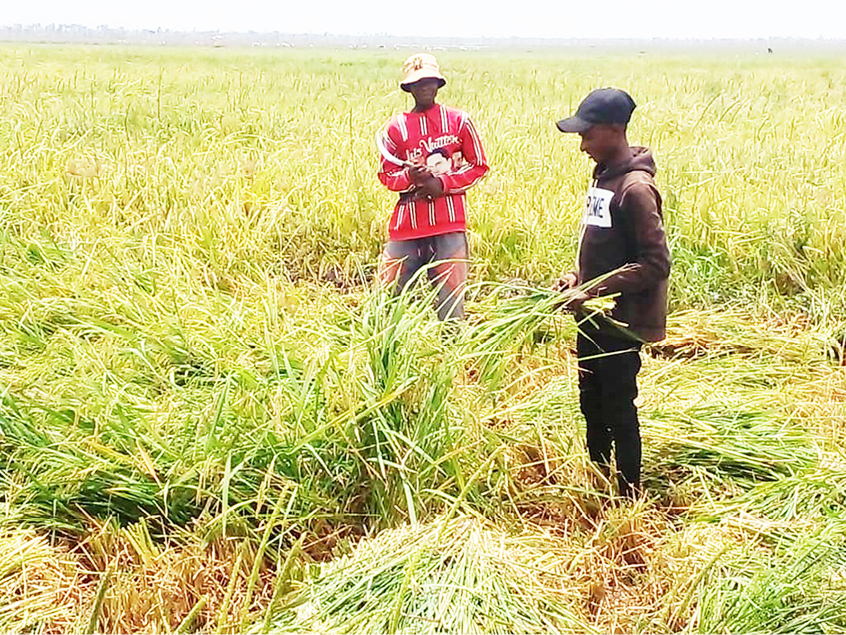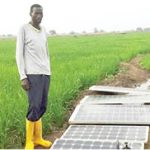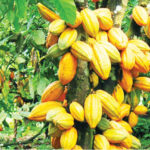In Sheka community, almost everyone fish for a living, and that has been the major economic activity for several decades. However, the community has shifted their attention more to dry season farming, with rice taking the centre stage.
In a recent visit to the community, Daily Trust on Sunday spoke with many of the farmers in their fields to explain what necessitated the shift from their age-long traditional fishing enterprise to one of the country’s main national grain.
The ban on importation of rice and other commodities by the outgoing administration of President Muhammadu Buhari, which gave raise to high demand of local rice and its good price, attracted Sheka community into mass production of paddy.
For many years, Sheka town, which served as a camp for fishermen (Tunganmasunta), is surrounded by several river tributaries.
The town is few kilometers away from River Benue; and there are more than 12 fishing rivers and lakes, which gave the community a good source for fishing that makes the area one of the biggest for the trade in Taraba State.
The marshy and fertile vast land running from both directions in the community added advantages for dry season farming, but the potential was only discovered and utilised seven years ago.
The area is under Gassol Local Government, close to Mutum-Biyu town, the headquarters of the local government, which also served as a hub for paddy market activities in the North East region.
“We have been sleeping on a goldmine for many years until recently when we discovered the agricultural potentials of this area,” Ibrahim Fancy said.
Fancy, a fisherman and now a large-scale dry season farmer, told Daily Trust on Sunday that the entire community depended on fishing for the past 80 years but they have now shifted more of their attention to dry season farming.

He said the entire members of the community, including housewives, have turned to dry season and are making fortune because of the good price they are getting for their produce.
Findings revealed that farmers from Enugu, Imo, Kebbi, Sokoto, Kano, Gombe and Borno states, as well as those from several other states, participate on dry season farming, mainly producing rice.
The natural channel provides a good source of water, as well as high water table level in the Sheka area to enable easy pumping of water to supply the farms.
Findings further revealed that the area has the capacity to provide thousands of both large and small scale farmers with enough land for irrigation farming.
“Despite an increasing number of farmers coming to Sheka during dry season to farm, there is still more land not utilised for dry season farming,” a fisherman who became rice farmer told our correspondent.
Sule Dauda told our correspondent that Sheka was initially a camp for fishermen, but gradually, it turned into a town as fishermen from Kebbi, Wudil in Kano State, Sokoto and those from South-South came in because of good harvest of fish all- year-round.
Dauda added that they were making more money now than when they concentrated in fishing.
“Rice farming during dry season is a good source of money to the entire community; and no one is left out,” he said.
He said the farmers were categorised – some cultivate five or more hectares while others cultivate an average of one hectare – with many getting as much as eight tonnes of paddy rice.
He said a 100kg bag of paddy rice cost N19,000 in Sheka while it is between N20,000 and N21,000 at the Mutum-Biyu grain market.
Another fisherman, Adamu Garba, who also engages in dry season farming, told our correspondent that land and water were available in Sheka for any farmer to use, but for many farmers, it was difficult to get money to buy seedlings, water pumping machine, fertiliser and weed chemicals.
“We are not getting any incentive from the state government or loans from commercial banks to carry out our farming activities. Farmers source their money to invest in the business,” Garba said.
He, however, commended the initiative of a large-scale farmer, Isa Tafida, Yeriman Muri, for introducing an interest-free loan to dry season farmers in the area.
Daily Trust on Sunday gathered that Isa Tafida has granted an interest-free loan of N500,000 each to hundreds farmers this dry season. The loan was fully repaid soon after the harvest, which increased the number of dry season farmers in the area this year.
A beneficiary, Ibrahim Fancy, told our correspondent that Tafida was approached by the community to assist farmers with interest-free loans to enable more members of the community engage in dry season farming.
“Isa Tafida, who has engaged in dry season farming in Sheka for some years now, is familiar with constraints of money faced by members of the community accepted the request under a strict guideline,” Ibrahim said.
Ibrahim said that to ensure strict adherence to the guideline set by Tafida, the beneficiaries of the loans are monitored to ensure strict application and use.
According to him, the N500,000 is released in part to each farmer based on progress he made on his farm; that is to say that money for seedlings, land preparation, planting, watering and fertiliser, as well as harvesting, is release according to the demand of the farm.
“We ensure that beneficiaries do not use the loans for any other purpose than farming activities; and where there is an urgent financial need for an individual farmer, we give him money outside the loan package and a record is made for him to offset from the proceeds of his harvest,” he explained.
He, however, said Tafida, made a request to the beneficiaries to sell the harvested paddy rice to him in whole or part at the market price; and a farmer has the right to accept or reject the request.
He said farmers in the area had witnessed bumper harvest and stabilised shortage of paddy rice, bringing down the price of the produce from N25,000 to between N20,000 and N21,000.
Ibrahim further said the entire 100 beneficiaries of the loans had harvested and sold their produce. Some sold to Tafida while some sold in the market.
“Dry season farming in Sheka has produced young millionaires, while the loans granted farmers have produced more millionaires, including housewives in Sheka,” one of the beneficiaries said.
Apart from making good fortunes from rice farming, many young people, including women, are now fully engaged in one activity or another, all related to dry season farming.
Similarly, Mutum-Biyu, the headquarters of Gassol Local Government Area, which became a major centre for paddy supply, gets lots of supply from Sheka area as thousands of tonnes of paddy are produced by dry season farmers each season for the past seven years.
Our correspondent also learnt that most big and small rice mills across the country, as well as local rice processors within and outside the state, source paddy from Sheka area
A beneficiary of the loans, Rabiu Sule, who is also a fisherman, while commending the initiative of Isa Tafida, also appealed for more money to enable more people in the area key into dry season farming.
Also commenting on the potential of Sheka area, Tafida said he was aware of the constraints faced by many people who want to engage in dry season farming.
The farmer said he accepted the request by Sheka community and granted the loans, adding that he was impressed with the performance of the beneficiaries.
“The performance of the beneficiaries of the loans has encouraged me to think of increasing the number for the next dry season,” he said.

 Join Daily Trust WhatsApp Community For Quick Access To News and Happenings Around You.
Join Daily Trust WhatsApp Community For Quick Access To News and Happenings Around You.


